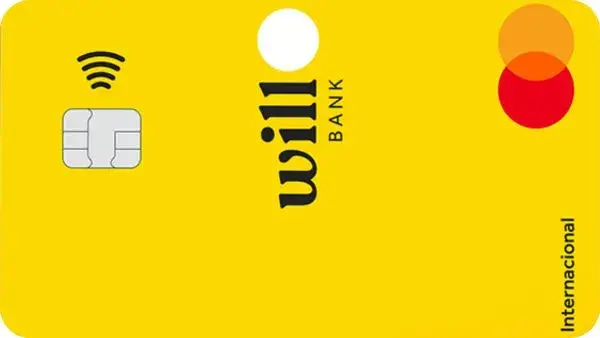Take a look at the best and most profitable cryptocurrencies available on the market today and find out if they're worth investing in
Adverts
Cryptocurrencies have emerged as a revolution on the global financial scene, challenging traditional concepts and opening doors to new investment opportunities and innovation.
As the world of digital finance continues to expand and evolve rapidly, it is essential to understand not only what cryptocurrencies are, but also how they can be navigated effectively.
Its origins date back to the launch of Bitcoin in 2009, when its creator, under the pseudonym Satoshi Nakamoto, proposed a peer-to-peer digital currency that would eliminate the need for financial intermediaries. Since then, thousands of cryptocurrencies have been created, each with its own unique technology and application.
Behind cryptocurrencies is blockchain technology, a distributed and immutable ledger that forms the backbone of these digital assets.
Blockchain enables secure and transparent transactions without the need for a central authority, making cryptocurrencies decentralised and resistant to censorship. This technology has the potential to revolutionise not only finance, but also a variety of sectors, including supply chains, health and governance.
Despite the exciting opportunities that cryptocurrencies offer, they also face a number of significant challenges.
Price volatility, security concerns, ever-changing regulations and a lack of public understanding are just some of the issues investors face when entering this market.
However, with due diligence and a solid understanding of the underlying principles of cryptocurrencies, investors can successfully navigate this ever-evolving landscape and take advantage of the opportunities it offers.
Quick Index:
Origin of Cryptocurrencies
Cryptocurrencies were born with the launch of Bitcoin in 2009, introducing the concept of a decentralised digital currency based on blockchain. Blockchain, a distributed ledger technology, allows secure and transparent transactions without the need for intermediaries.
Since then, hundreds of other cryptocurrencies have been created, each with its own unique features and use cases, some more profitable than others.
Investment opportunities
Investing in cryptocurrencies offers a variety of opportunities, from buying and holding long-term assets to active trading on exchange platforms.
Bitcoin remains the dominant cryptocurrency and a digital store of value, while others such as Ethereum, Binance Coin and Cardano have diverse use cases, including smart contracts, decentralised finance (DeFi) and decentralised applications (DApps).
Challenges and strategies
Despite the opportunities, the cryptocurrency market also presents significant challenges. Volatility is a prominent feature, with prices able to fluctuate dramatically over short periods of time.
In addition, concerns about security, regulation and widespread adoption can affect investor confidence and market stability.To successfully navigate the cryptocurrency market, investors must adopt a careful and informed approach.
This includes carrying out detailed research into cryptocurrency projects, diversifying the portfolio to mitigate risks and keeping up to date with market developments and trends.
In addition, it is essential to set clear investment goals and maintain a long-term mindset in order to withstand volatility and price fluctuations.
Top 7 best digital currencies
1. Bitcoin (BTC)
As the first and most widely recognised cryptocurrency, the Bitcoin remains a popular choice for investors due to its liquidity, widespread adoption and status as a digital store of value.
Bitcoin emerged in 2009 when its creator, known by the pseudonym Satoshi Nakamoto, published a white paper describing a peer-to-peer digital currency that would eliminate the need for financial intermediaries.
Since then, Bitcoin has grown in popularity and has been widely adopted as a form of investment, a medium of exchange and a digital store of value similar to gold.
2. Ethereum (ETH)
As well as being a cryptocurrency, the Ethereum is a blockchain platform that supports smart contracts and decentralised applications (DApps), making it an attractive choice for blockchain projects and developers.
Launched in 2015 by programmer Vitalik Buterin, Ethereum introduced more advanced functionality to the blockchain, enabling the creation of smart contracts, which are self-executing programmes that automatically execute the terms of a contract when conditions are met.
3. Binance Coin (BNB)
Created by the Binance exchange, the Binance Coin is mainly used to pay fees on the Binance platform, but has also been adopted in a variety of use cases, including transactions, project financing and staking.
Binance Coin was launched in 2017 as a utility token on the Binance platform, one of the world's largest cryptocurrency exchanges. Since then, Binance Coin has expanded beyond its original utility and has been increasingly adopted in different sectors of the crypto ecosystem.
4. Ripple (XRP)
Ripple is a global settlement solution that aims to facilitate fast and cheap cross-border payments. It is frequently used by financial institutions and companies for international money transfers.
Ripple was founded in 2012 with the aim of solving the efficiency and cost problems associated with international financial transactions. XRP, the native cryptocurrency of the Ripple network, is often used as a bridge between fiat currencies to facilitate fast and cost-effective transfers.
5. Cardano (ADA)
Cardano is a third-generation blockchain platform that stands out for its approach to security and scalability. Its aim is to offer a more efficient and sustainable platform for smart contracts and decentralised applications.
Launched in 2017 by Charles Hoskinson, one of the co-founders of Ethereum, Cardano was designed with a focus on decentralised governance, interoperability and long-term sustainability.
6. Solana (SOL)
Solana is a high-performance blockchain that aims to scale and process transactions quickly and efficiently. It is known for its low transaction fees and ability to support high-volume decentralised applications.
Launched in 2020, Solana was designed to solve the scalability problems faced by other blockchains, such as Ethereum, by enabling fast and cheap transactions on a highly scalable blockchain network.
Conclusion
With the growth of the digital currency market, there are many options available and identifying the one that is most worthwhile for you according to your financial life is essential. Don't make hasty decisions.
As interest in and adoption of cryptocurrencies continues to grow, it is crucial to understand the fundamentals of this rapidly evolving market. By doing so, investors can take advantage of the investment opportunities offered by cryptocurrencies while mitigating the associated risks.
With an informed and strategic approach, you can successfully navigate the cryptocurrency universe and take advantage of the benefits it offers for portfolio growth and diversification.
Read more: How women can invest in cryptocurrencies
You may be interested:















